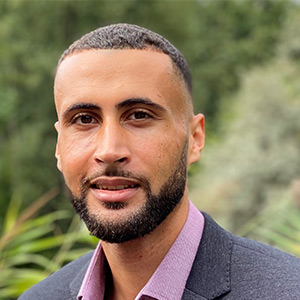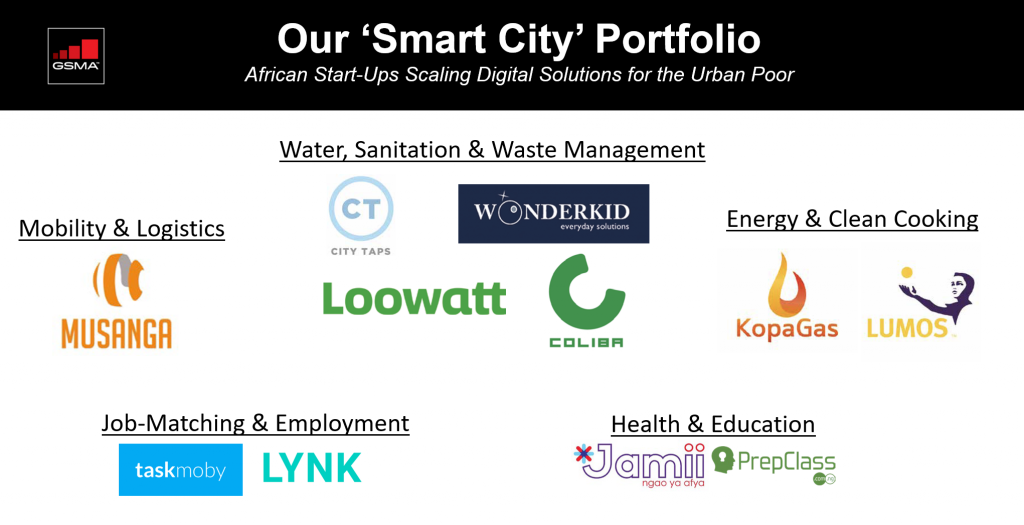The GSMA Mobile for Development (M4D) Utilities team was excited to speak at the Afric’Up Tech and Start-Up summit on 24 and 25 September in Tunis, which focused on how innovative start-ups can address the challenges associated with rapid urbanisation across Africa. The event was jointly organised by the Tunisian government, Smart Africa, GIZ, as well as the Make-IT in Africa initiative, and it convened start-ups, investors and government officials from Africa and beyond. Here are our take-aways.
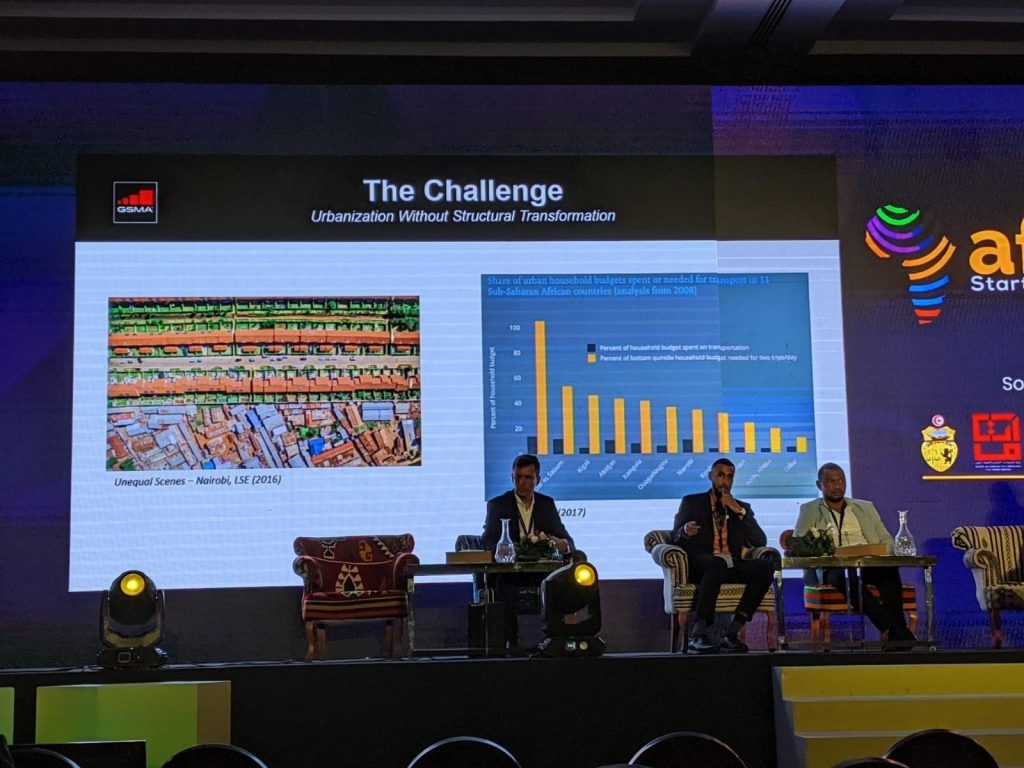
Mobile for Development Utilities Advocacy Manager George Bauer discussing the role of mobile in supporting challenges from rapid urbanisation
According to the Sahel and West Africa Club Secretariat at the OECD, whose director, Laurent Bossard, gave the opening keynote at Afric’up, African cities will be home to an additional one billion people by 2050. Bossard, whose organisation developed Africapolis, a geo-spatial database visualising African urbanisation over time, stressed that the pace and intensity of urbanisation across Africa is actually greater in secondary cities than mega-cities, and thus warrants a lot more attention. He also stressed that African cities will have to re-imagine the provision of basic services such as water, sanitation and transport. Indeed, the unprecedented, rapid trajectory of urbanisation in Africa represents an immense challenge for city authorities and municipalities, which often results in the urban poor lacking access to affordable and reliable basic services such as energy, water and sanitation (see Figure below).
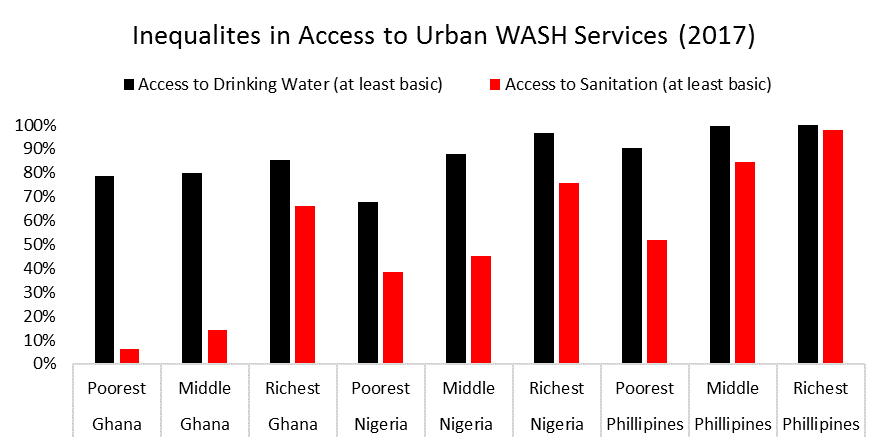
Source: GSMA Mobile for Development Utilities (based on JMP 2019)
No running water but 4G – how African cities can take advantage of this paradox
Paradoxically, despite these challenges, African cities have unprecedented access to technological innovations. According to the GSMA 2018 State of the Industry Report on Mobile Money, in Sub-Saharan Africa alone, there are over 145.8 million active mobile money accounts (with mobile money penetration being particularly high in urban areas) that processed payments worth over $26.8 billion in 2018. Similarly, given a rural-urban internet gap of 57 per cent, the bulk of Sub-Saharan Africa’s 239 million mobile internet users are located in urban areas and are projected to grow to 483 million in 2025. The increased availability of mobile connectivity and mobile payment deployments have enabled the proliferation of digital solutions that have the capacity to improve the access, affordability, reliability, and safety of energy, water and sanitation services. This is particularly true in rapidly growing urban areas, where mobile-enabled digital solutions such as pay-as-you-go (PAYG), GIS tracking or smart metering are uniquely positioned to help tackle complex challenges associated with utility service delivery. Specifically, those that require tailored, cost-effective solutions, capable of coordinating between a wide range of public, private and civic stakeholders.
The aim of our panel discussion was to highlight precisely this opportunity, and to underline the potential of multi-stakeholder partnerships between municipalities, mobile operators, and start-ups. Innovators collaborating to tackle the challenges associated with urbanisation have unique potential to deliver social impact. This is best exemplified by the GSMA Ecosystem Accelerator and Mobile for Development Utilities Innovation Fund start-ups that are helping to address various challenges facing the urban poor.
- Energy and clean cooking
- KopaGas (Dar Es Salam, Tanzania): In Dar Es Salaam, four out of five residents still depend on solid fuels such as charcoal and wood as their main source of energy for cooking, causing detrimental effects on the safety and respiratory health of families and the country’s ecology. KopaGas makes clean, efficient liquid petroleum gas (LPG) affordable and available for low-income households through its pioneering PAYG smart-metering technology.
- Lumos (Multiple Cities, Nigeria): According to estimates, at least 22 million small, polluting, gasoline generators are being used to power households and small businesses in Nigeria that cannot rely on the national grid. Lumos designs and manufactures mobile-enabled solar home systems and partners with mobile operators to make PAYG solar available in markets with a large addressable off-grid population. 60 per cent of Lumos’ customer base lives in urban or peri-urban areas.
- Mobility and logistics
- Musanga (Lusaka, Zambia): Whilst young people make up almost two-thirds of Zambia’s working-age population, almost 25 per cent are unemployed. Meanwhile, local small businesses and shops face simple infrastructure challenges, such as timely delivery of packages and inventory. Musanga is a delivery service for packages in Lusaka. It enables small businesses and shops to lower their logistical costs while allowing informal micro-entrepreneurs with underutilised assets like motorbikes, bicycles or trucks, to fulfil last-mile deliveries through Musanga’s mobile platform and earn extra income.
- Job-matching and employment
- Lynk (Multiple Cities, Kenya): According to a World Bank report, the informal sector accounts for close to 83 per cent of Kenya’s employment, which for millions of workers means uncertainty, low pay and few opportunities for career advancement. Lynk’s core offering is to connect informal workers to suitable jobs. Users submit their service request on the platform, which is then forwarded to available service providers via SMS. Interested service providers can bid for the job by replying to the job message. Customers pay via mobile money or card and are prompted to provide a service rating.
- Water, sanitation and waste-management
- CityTaps (Niamey, Niger; Ouagadougou, Burkina Faso): Water supply disconnections due to non-payment is a common issue for urban residents of Niamey, Niger. Meanwhile, Niger’s national water utility faces challenges serving the poor with affordable and clean running water. CityTaps has developed a water utility subscriber management solution that includes a smart prepaid water meter. The solution allows households to make micro-prepayments for their water at any time using mobile money.
- Loowatt (Antananarivo, Madagascar; Manila, The Philippines): Access to basic sanitation services is a major development and public health challenge in Madagascar. Loowatt leverages a range of mobile tools to deploy container-based sanitation solutions in Madagascar’s capital, Antananarivo, where high urban density poses significant challenges to waste and faecal sludge management.
- Coliba (Abidjan, Cote d’Ivoire; Accra, Ghana): As of 2018, more than five million tonnes of waste are generated each year in Côte d’Ivoire, and this is expected to double by 2030. Coliba is a web, mobile and SMS platform that connects households and businesses with Coliba-affiliated, trained and equipped plastic waste pickers. In exchange for plastic waste, households receive points that can be converted into airtime. Plastic waste is converted into pellets in Coliba’s local factory and then sold to local, plastic-based industries.
The future holds tremendous potential
Two GSMA Mobile for Development team members also participated in a start-up pitching session, which featured African entrepreneurs, who were passionate about tackling real challenges and delivering social impact. It was impressive to see the ingenuity and resourcefulness displayed by many of the participating innovators.
Thanks to companies like Briter Bridges, which maps and gathers intelligence on African start-ups in various sectors (see their mobility mapping featuring over 150 African ventures below), there is increasingly granular data on various African tech ecosystems and early-stage ventures available. The company has also recently published Digitising Logistics in Africa, a report that looks at how innovators are leveraging digital tools to disrupt supply chain and goods delivery across Africa.
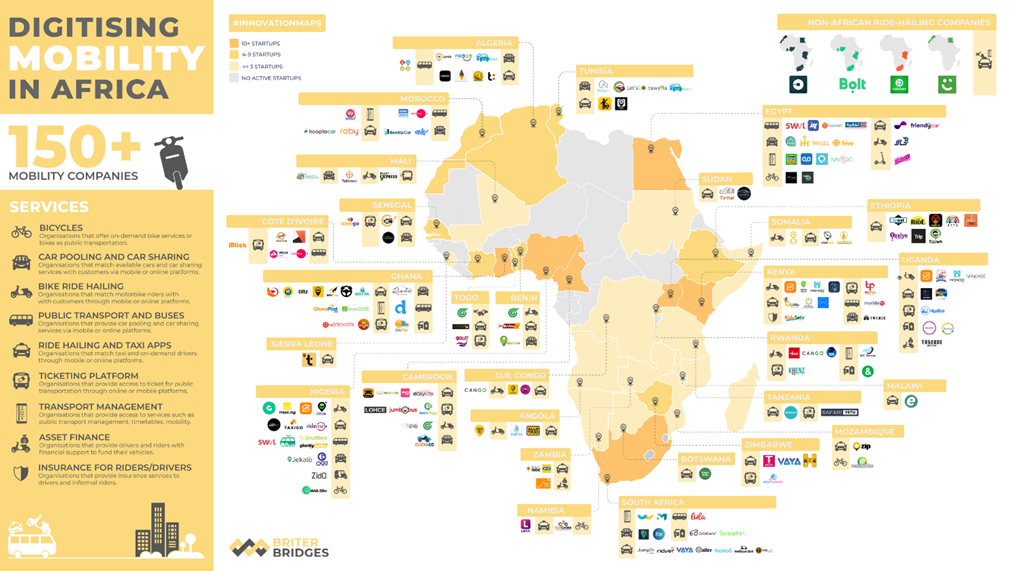
Source: Briter Bridges Innovation Maps (2019)
It is precisely this innovative dynamism, channelled towards real challenges, that the Ecosystem Accelerator and Mobile for Development Utilities Programmes seek to empower (check out our respective grantee portfolios here and here).
We would like to end this blog by thanking the organizers of Afric’Up and look forward to our continued cooperation with Smart Africa, the Tunisian government, GIZ as well as the Make-IT in Africa initiative.
The GSMA Mobile for Development (M4D) Utilities programme is funded by the UK Department for International Development (DFID), USAID as part of its commitment to Scaling Off-Grid Energy Grand Challenge for Development and supported by the GSMA and its members.



